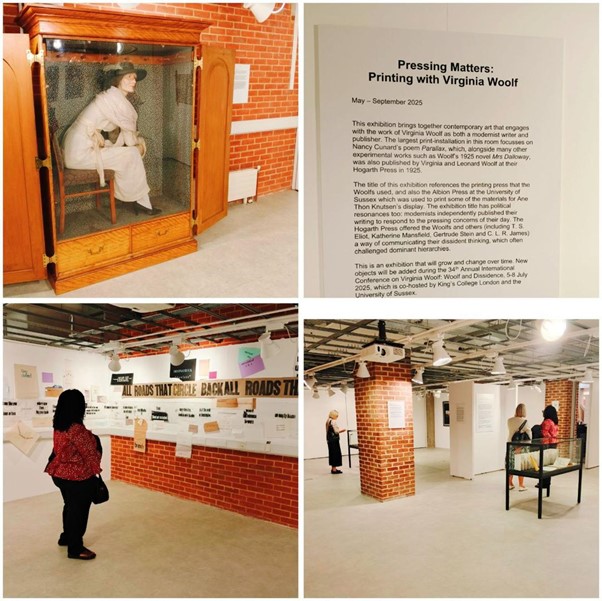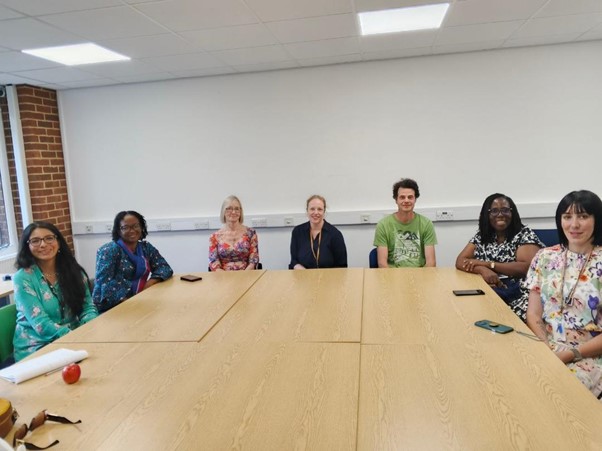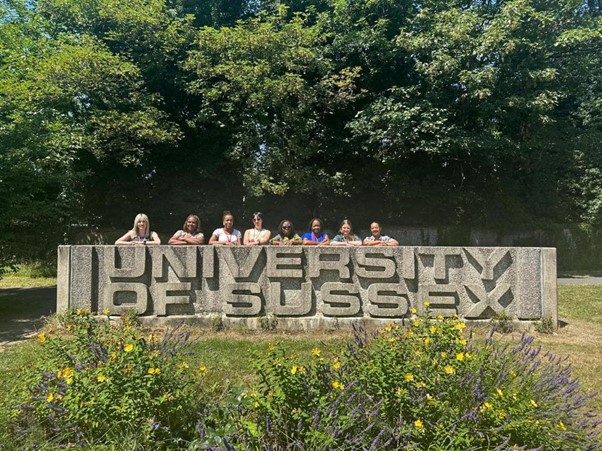CEGENSA Deepens Global Gender Equity Ties Through Exchange Visit to University of Sussex
The Centre for Gender Studies and Advocacy (CEGENSA) at the University of Ghana has completed a landmark academic exchange trip to the University of Sussex, UK, as part of the Cross-Institutional Reciprocal Mentoring Scheme. The week-long visit, held from July 7–10, 2025, was designed to strengthen partnerships, promote institutional learning, and enhance gender equity and inclusion across higher education.
Led by Professor Deborah Atobrah, Director of CEGENSA, the three-member delegation engaged in a series of high-level dialogues, strategic meetings, mentoring sessions, and collaborative planning events with key figures from across the University of Sussex. The initiative forms part of CEGENSA’s broader agenda to promote inclusive leadership, equity in academia, and south-north knowledge exchange.
Orientation and Campus Tour

The visit began with an immersive orientation and campus tour led by Professor Sarah Guthrie, Professor of Developmental Neuroscience. Highlights included stops at the Attenborough Centre for the Creative Arts, Student Centre, Eat Central, and the Interdenominational Church, offering the CEGENSA team a first-hand view of Sussex's inclusive and interdisciplinary learning spaces.
Strategic Stakeholder Engagement
At a stakeholder lunch held at Sussex House, the CEGENSA team engaged with top university officials, including Professor David Ruebain (Pro-Vice-Chancellor for Culture, Equality and Inclusion), Mr. Colin Shipp (Executive Director of HR), and Sarah Law (EDI Consultant). Discussions focused on shared institutional experiences and best practices in advancing Equity, Diversity, and Inclusion (EDI), particularly in leadership representation, policy accountability, and intersectional equity.
Sussex shared its strategy of embedding EDI in governance structures, including conducting equality impact analyses and aiming for gender parity among executive deans. Meanwhile, CEGENSA highlighted UG's recent gender leadership milestones, including the appointments of the university's first female Vice Chancellor, Registrar, Chancellor, and Council Chair.
Roundtable on Gender and Academia

A cross-institutional roundtable brought together female academics from Sussex and Ghana to share experiences on navigating gendered barriers in academia. CEGENSA shared UG’s successful model of integrating gender education into the undergraduate curriculum, reaching over 70,000 students. Discussions also explored mentorship as a tool for supporting women in research and the importance of addressing caregiving burdens and access to fieldwork.
Engagements with Strategic Units
The CEGENSA team held meetings with multiple departments and centres, including:
● The Centre for Equitable Global Health Research
● The Institute of Development Studies (IDS)
● The Department of Global Health and Infection
● The Gender Equality Steering Group
At the Centre for Equitable Global Health Research, discussions focused on co-developing joint projects related to gender, equity, and infectious diseases, as well as supporting early-career researchers. At the IDS, dialogue centered on institutional communication strategies and global partnership development.
Professor Deborah Atobrah and Dr. Papreen Nahar also explored research collaboration on reproductive health, antimicrobial resistance, and gender-based violence, with plans to exchange teaching materials and co-develop academic modules in global health.
Mentoring Walk and Final Reflections
The visit concluded with a mentoring activity walk through Sussex’s scenic Stanmer Park and a reflective lunch to foster interpersonal bonds. The CEGENSA team also participated in a Gender Equality Steering Group meeting, which spotlighted Sussex's EDI achievements, including its Gold Athena Swan Award and Women’s Leadership Academy.
Looking Ahead
Plans are underway for the University of Sussex to visit Ghana in March 2026 as part of the reciprocal component of the mentoring scheme. Both institutions committed to sustained collaboration in research, policy reform, and capacity-building. Joint outputs are expected to include publications, toolkits, and digital resources to inform global conversations on gender equity in academia.
CEGENSA’s participation in this exchange underscores its dedication to building a more inclusive academic future—one rooted in shared learning, equity, and transformative leadership.

